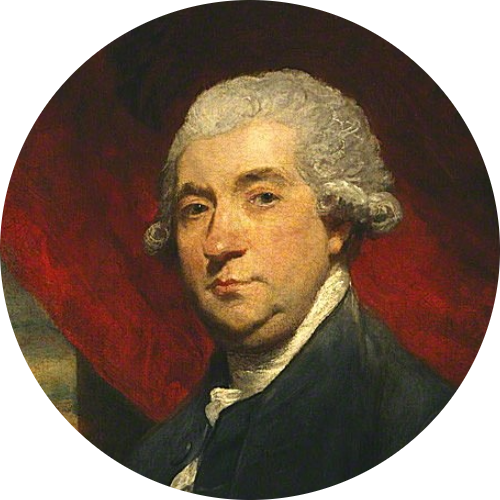Poet and translator. Studied at Edinburgh University. Gained initial fame when he published Fragments of Ancient Poetry Collected in the Highlands of Scotland and Translated from the Gallic or Erse Language in 1760. This publication enabled him to travel around Scotland in search of ancient literature. The result was published as Fingal (1762) and Temora (1763). Although warmly received in some literary circles (by the rev. Hugh Blair and others), figures such as David Hume and Samuel Johnson remained sceptical about the authenticity of the poems. After Macpherson's death in 1796, a committee concluded that he had treated the Gaelic poems in a free and selective fashion, adding much verse of his own invention.
From 1763 to 1766, James Macpherson was employed as a secretary to the Governor of Florida. He later returned to London, where he worked as a historian, lobbyist, and political pamphleteer for the remainder of his life. He died in 1796 and is buried in Westminster Abbey.
Boswell lunched with Macpherson in London on December 11, 1762, and described him as a genius and as an honest Scottish highlander. On May 1, 1763, following Macpherson's arrival back in London from a journey to Holland and France with Lord Elibank, Boswell and Macpherson breakfasted together. On this occasion Macpherson said, "that to retain our high ideas of anything, we should not see it". On May 20, 1763, they walked together in Hyde Park, and Macpherson apparently was "railing against the human species, and in vast discontent". They met occasionally in the following years.
Ossian and Fingal are widely available in numerous editions via AbeBooks. The best biography about MacPherson, which also deals extensively with his poems, is Fiona Stafford's (1988) The Sublime Savage: A Study of James Macpherson and the Poems of Ossian.
